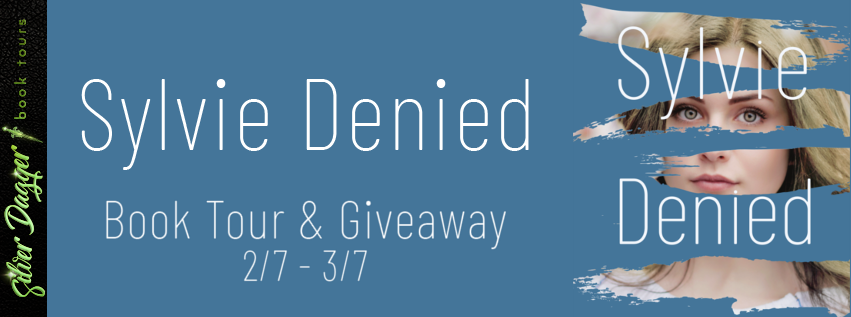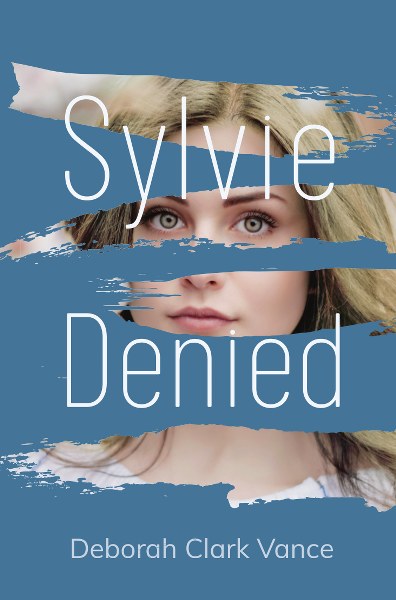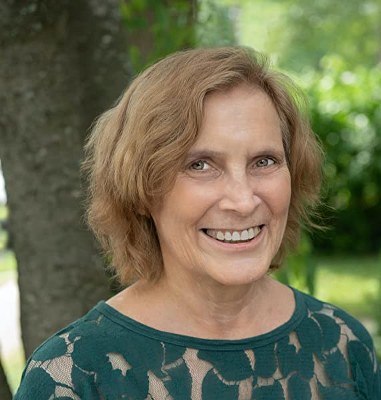Having
Children Chapter 1: Wedding Gift, p. 9 (469
words)
She’d
been in Italy a year before meeting Enzo, who intrigued her as soon as she saw
him because his look was more casual American than polished Italian. He was
working on an advanced degree and supported himself making leather goods.
Sylvie made him teach her how. Soon she was showing him how to streamline his
operation by making reusable patterns. In a matter of weeks they were spending
most of their time together. She luxuriated in his company when they were
together and longed for him when they weren’t. To her, their synergy and her
intense feelings spelled love.
She was
cutting a pattern and he was attaching a cowhide strap when he blurted out that
he wanted to have a family someday.
“You’re the
first man I’ve known who said he wanted children,” she replied.
Truly, she’d never discussed
children with a man. But last year in Mantua, she saw her 28-year-old friend
Patrizia panic about her waning fertility as her male friends said by age
twenty-three a woman was too old for marriage. Such pressure troubled Sylvie
too, although she wasn’t raised to be a woman who dreamed of motherhood but
rather one to finish college and have a career. In fact, her mom had never
exposed her to newborns, and children misbehaving in public always
prompted Mom to mutter, “Lousy
little kids.” Whenever Sylvie had asked Mom why she’d had children when they
clearly annoyed her, she replied, “Society expects it.”
Now
Sylvie told Enzo, “I’m not ready to have children,
if
I ever do.”…she wasn’t raised to be a woman who dreamed of motherhood but
rather one to finish
college
and have a career. In fact, her mom had never exposed her to newborns, and
children misbehaving in public always prompted Mom to mutter, “Lousy little
kids.” Whenever
Sylvie had
asked Mom why she’d had children when they clearly annoyed her, she replied,
“Society expects it.”
Now
Sylvie told Enzo, “I’m not ready to have children, if I ever do.”
“Ready?”
Enzo said. “Capitalist hogwash! Children enrich life—they are life! You just
need some extra food and clothes and you pack him up and bring him along. Think
what fun with a little baby playing around!” He pulled her close and gazed into
her eyes, reminding her
how long
she’d yearned to escape suburban artifice and plunge into life’s core, to feel
its pulse, to be more in her body. She’d experienced such exuberance in Italy
where parents included children in ways unthinkable in Sylvie’s suburban
American world. Children were often seen eating at restaurants late into the
evening, attending adult parties, listening in on their parents’ conversations,
so she was starting to see them as life-affirming rather than an obstacle to
her career plans. She enjoyed discovering these cultural differences with Enzo.
Stereotypes Chapter 2: Honeymoon, pp.
15-16 (606 words)
Enzo
took the wheel when he was up and drove all morning, saying he’d never seen
such empty spaces. When the map told them they were near the Wildrose
Reservation, he pulled over at the sight of a hitch-hiking man with long black
hair and a deadpan face who ambled to the car and climbed in, reeking of
alcohol. “I want to talk to Indians. The real Americans,” Enzo said.
The man
didn’t reply, but as they approached a crossroad with no signs, trees,
buildings or anything that distinguished it, the man gripped the doorknob and
said, “I’ll get out here.”
Enzo
pulled over. “Is this the reservation?” The man released the doorknob. “OK, you
keep going. You go talk to Strong Hawk. Very, very wise man.” Then he ducked
out of the car and walked backward, bobbing at them before turning down the
crossroad.
Enzo
said, “I heard Indians are alcoholics. I hope we find a sober one.”
“Do you
realize how many stereotypes you have? You also say the Indians are an
oppressed proletariat ready to rise up.”
Enzo
said, “That’s social science, not a personal stereotype.”
“Not
everyone is Italian, you know. Or even European.”
At an intersection where a small
sign indicated Wildrose Reservation, Enzo turned onto a two-lane road of bumpy,
cracked asphalt. Along both sides lay rusting cars, some with flat tires,
others at such odd angles Sylvie couldn’t figure how they’d ended up that way.
She’d been right in wanting to leave the States, she thought. This place proved
its violent nature, its enduring abasement of those most vulnerable.
Enzo
observed, “Don’t they have mechanics out here?”
“Please
stop it,” she said.
They
drove through barren snow-dusted plains dotted with naked trees until reaching
a row of angled parking spaces. Unpainted clapboard buildings—two tourist shops and the post office—comprised
the town. Enzo kept the engine running to stay warm while Sylvie entered
the larger store called, with
little imagination and a nod to tourists, “The Trading Post.” Tables were laden
with necklaces and bracelets of Venetian glass beads, an array of turkey
feathers dyed in gaudy colors, silver jewelry and Wildrose souvenir key chains
and ashtrays. She visited the
other store and found shelves of
books and spinning metal racks of postcards presided over by a white man in a
plaid shirt and bolo tie sitting on a stool behind a counter. She picked up two
postcards and a few books about Lakota history and took them to the counter.
Through the window she saw Enzo standing by the car smoking.
“That’s
a good book, but here’s some better ones.”
The
owner-proprietor-cashier walked her to the bookcases and pulled out one on the
Lakota and Cheyenne. Sylvie wondered how he was allowed to operate a store
on the reservation.
“Have
you heard of Strong Hawk?” she asked.
“Of
course,” he answered. “James Strong Hawk.”
“How can
I find him?”
“Funny,
that guy’s becoming famous. Stay on this road, go ‘round the first curve, cross
the bridge, then go about ten miles to another big curve. There’s a sign in
front of his house with his name on it.”
She
carried her purchases to the car. “Why didn’t you come inside?”
Enzo
shrugged. “Wanted a smoke.”
They
followed the directions until there at a curve where the road turned sharply
left stood two small houses, a modular house and another house pieced together
with found objects like an art installation—wooden crates, car windows, sheets
of corrugated metal, tree trunks holding up the roof, even a pair of antlers. A
sign between the houses read, “Strong Hawk’s Paradise.”
Old Wives Tales Chapter 4: Rules, p. 38 (495 words)
The next
morning, Sylvie went to return Olga’s milk pail. She breathed in the scent of
tilled earth arising from the hot fields as she walked along the cobblestones
that lay like rows of solid bubbles even after centuries of hooves and feet had
worked to flatten them. Coming through a dark passageway, she entered the
bright piazza and tripped on a cobblestone’s humped back and the pail flew from
her outstretched hands as she stumbled. Olga and Griselda were perched on a ledge,
the tiny vines of their calico aprons extending up from the stones. Relieved
she didn’t land on her belly, they heaved a loud sigh as from a single breast,
then laughed.
“We
always fell down, too,” said Griselda.
“When I
was pregnant, I fell down a whole flight of stairs,” said Olga.
“Maybe
by the time I’m used to all this weight, the baby will be born,” Sylvie said,
leaning sideways to pick up the pail.
“Yes,
and you’ll be carrying the little one in your arms instead,” said Olga.
Sylvie
was about to sit when Griselda gasped so loudly that Sylvie jumped up,
expecting to find a snake slithering behind her.
“No! You
might lose the baby if you sit on that cold stone!”
Sylvie’s heart pounded. “I could’ve
lost it from fright just now!” Olga folded up her sweater to make a cushion for
her.
“Just
beware of the extremes,” said Griselda. “Hot and cold.”
Sylvie
wanted to rebel against all these restrictions but, without facts to counter
them, didn’t dare. Besides, she admired Griselda and Olga. They’d never sit in
Café Miraggio and discuss whether the economy balanced on women’s backs. But
who in Café Miraggio could do what they did, bring forth life out of soil,
prune grapevines and tie their branches to trellises, gather wood into bundles
and sling them over their shoulders, scramble up the hill and out of sight on
spring days when porcini were growing in their secret places, move quick and
sure, like rabbits darting home? When Sylvie was eight, Mom handed her a seed
packet bearing pictures of bright blue morning glories, suggesting she plant
them by the arbor. Smiling, Mom said, “Read the instructions.” Sylvie took the
seeds outside, poked holes in the soil with her finger and dropped them in, not
knowing she’d planted them too deep, and quietly despaired when they never
surfaced. She never mentioned it and Mom forgot about it. And when she planted
seeds in the garden Olga gave her, she regarded the seedlings with awe, as if
she’d performed a miracle. But no, it’s the spirit of life pushing through the
earth as the spirit of life was in her belly. Where Mom struggled underneath
male definitions, these women, growing out of their village stone, knew how their
femaleness fit not just on the planet but in society. It was as if they
included her in their water line.
Consciousness Raising Chapter -- Real Women, p.118 (799
words)
Sylvie
had called the number in The Phoenix classified ad and a woman gave her the
address, so on Tuesday evening she hitchhiked there because it was faster than
the subway. After days of not seeing Saul, she managed to conjure only a hazy
image of him.
Lyn
answered the door wearing faded Levi’s and a men’s embroidered Guayabera shirt.
She led the way upstairs where women sat in a circle on metal folding chairs or
floor pillows. Sylvie nodded hello and sat beside Lyn who said, “Last time,
Jean, you were talking about the rape. I’m wondering how far you want to go
with this?”
“I don’t
know. But I don’t want my husband to find out. He’d never believe me.”
“Are
you kidding? If I told mine a story like that, he’d beat the crap out of me,”
said a woman married to a cop, flicking ashes into a blue jar lid.
“But
Jean,” Lyn continued, “besides your husband believing you seduced your rapist,
what about your feelings?”
Jean
paused then said, “I’m sorry, but I don’t want to talk about it now.”
Lyn
nodded. “What we as a group can do is give sisterhood, and that should be a
comfort. But we also have to keep raising our own consciousness and that of our
brothers. This is all about learning. Most women spend their time talking about
their clothes, hair, makeup and boyfriends. Wouldn’t that tend to make us feel
intellectually inferior? Aren’t the ads geared toward making us think we must
be attractive because our life job is to get a man? Why shouldn’t men spend all
their time becoming enticing? For that matter, why should anybody?”
Some
women shifted in their seats. “That’s easy for you to say in your ivory-tower
world, Lyn. But we’re out there with real men,” said the woman in make-up.
“Oh
yeah? What’s a real man?” said Lyn. “If we knew what men thought they should
be, we could support them. But if a man doesn’t know who he is, how can we help
him from remaining a child?”
“Are we
supposed to know?” said Make-up Woman.
A woman
who Sylvie figured to be about twenty-five spoke up. “Since you’ve mentioned
children . . . .”
They all
laughed.
“. . .
I’ve been losing my mind. I used to be an artist, but now I’m a mom.”
“That’s
an old theme,” Lyn said. “When you have family responsibilities, it’s tough to
reconcile that with your urge to make art.”
“Lyn,
this is one time I’m going to disagree with you. My mind is totally involved
when I make art. It’s not an urge.”
“Point
taken,” said Lyn.
A
braless woman with pendulous breasts beneath her peasant blouse said, “We let
men be assertive because we’re sorry for them. They can’t have babies. Creating
and developing human lives is the most important work of art anyone can do.”
“Barb,
I’m glad you said that,” said Lyn. “Women have always been subjugated because
they have the babies. Because of that role they don’t shine out in the history
books.”
Barb
continued, “But if we proved we could do the same as men, if not better, where
would that leave them?”
“Why
should I care?” said Artist Mom. stayed home and raised children while we were
out politicking or painting, they’d all become impotent. Or do you think we’d
eventually become aggressive enough?”
“That’s
absurd,” said Jean. “Women attacking and raping helpless men, like dirt
attacking a shovel to make a hole in it.”
“Listen
to yourselves, sisters! That’s a trap,” said Lyn. “It’s what Marx called
‘wearing your chains willingly.’ We are our own oppressors.”
The
murmuring stopped. Everyone gaped at Lyn inanticipation.
“I want
men to understand women and treat us fairly,” Sylvie said. “I remember when my
brother asked me—maybe I was thirteen—whether I thought of myself first as a
person or as a girl. And I said, as a person and he said he thought of himself
first as a boy.”
Lyn
said, “Because he recognized the power boys had.”
“I
mean,” Sylvie continued, “I always thought of myself as a human with a mind,
and then a body.”
“You’re
lucky if you didn’t internalize those messages that said otherwise,” said
Make-up Woman.
“Yeah,”
said Artist Mom, “like girls can’t roughhouse, play sports, get dirty, be loud
. . . .”
“I
always thought of boys as just so sad,” said Mrs. Cop.
“Me too!
They didn’t have friendships like we have.
They
always seemed so burdened,” said Barb.
“It’s
those cocks they have to carry around,” said Artist Mom. Laughter swept around
the circle.
Lyn
said, “Who here has a son?”
A few
hands went up.
“We have
a responsibility to raise our sons differently.”











I'm honored that you included my book "Sylvie Denied" on your blog site. Thank you so much!
ReplyDelete